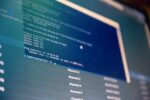The Pinkchyu Leaks: Unveiling the Secrets Behind the Controversial Data Breach
-
Table of Contents
- The Pinkchyu Leaks: Unveiling the Secrets Behind the Controversial Data Breach
- The Pinkchyu Leaks: A Brief Overview
- The Causes Behind the Pinkchyu Leaks
- The Consequences of the Pinkchyu Leaks
- Lessons Learned from the Pinkchyu Leaks
- Q&A
- 1. How can individuals protect themselves from data breaches?
- 2. What legal consequences can organizations face after a data breach?
- 3. How can organizations prevent insider threats?
- Conclusion
In recent years, data breaches have become a recurring nightmare for individuals and organizations alike. These breaches expose sensitive information, leaving victims vulnerable to identity theft, financial fraud, and other malicious activities. One such incident that sent shockwaves through the digital world is the Pinkchyu leaks. In this article, we will delve into the details of the Pinkchyu leaks, exploring the causes, consequences, and lessons learned from this notorious data breach.
The Pinkchyu Leaks: A Brief Overview
The Pinkchyu leaks refer to a massive data breach that occurred in 2019, affecting millions of users worldwide. The breach involved the unauthorized access and disclosure of personal information from the popular social media platform, Pinkchyu. The leaked data included usernames, email addresses, passwords, and even private messages.
News of the Pinkchyu leaks spread like wildfire, causing panic among users who feared the potential consequences of their personal information falling into the wrong hands. The incident not only raised concerns about the security of online platforms but also highlighted the need for stricter data protection measures.
The Causes Behind the Pinkchyu Leaks
Understanding the causes behind the Pinkchyu leaks is crucial in preventing similar incidents in the future. While the exact details of the breach are still under investigation, several factors likely contributed to its occurrence:
- Inadequate Security Measures: One of the primary causes of the Pinkchyu leaks was the lack of robust security measures in place. Hackers exploited vulnerabilities in the platform’s infrastructure, gaining unauthorized access to user data.
- Weak Password Policies: Many users had weak passwords or reused the same password across multiple platforms, making it easier for hackers to gain access to their Pinkchyu accounts.
- Insider Threats: While not confirmed in the Pinkchyu leaks, insider threats can pose a significant risk to data security. Employees or contractors with access to sensitive information may intentionally or unintentionally leak data.
The Consequences of the Pinkchyu Leaks
The Pinkchyu leaks had far-reaching consequences, impacting both individuals and the reputation of the platform itself:
- Identity Theft: With personal information exposed, users became vulnerable to identity theft. Cybercriminals could use the leaked data to impersonate individuals, open fraudulent accounts, or carry out other malicious activities.
- Financial Fraud: The leaked data, including email addresses and passwords, could be used to gain unauthorized access to users’ financial accounts. This put individuals at risk of financial fraud and loss.
- Loss of Trust: The Pinkchyu leaks eroded users’ trust in the platform. Many users abandoned their accounts, fearing further breaches or misuse of their personal information.
Lessons Learned from the Pinkchyu Leaks
The Pinkchyu leaks serve as a wake-up call for individuals and organizations, highlighting the importance of data security and privacy. Here are some key lessons learned from this incident:
- Implement Strong Security Measures: Online platforms must prioritize robust security measures, including encryption, multi-factor authentication, and regular security audits, to protect user data from unauthorized access.
- Encourage Strong Password Practices: Users should be educated about the importance of strong, unique passwords and discouraged from reusing passwords across multiple platforms. Platforms can enforce password complexity requirements and offer password managers as a solution.
- Monitor for Insider Threats: Organizations should implement monitoring systems to detect and prevent insider threats. Regular employee training on data security and privacy can also help mitigate the risk of insider breaches.
- Transparency and Communication: In the event of a data breach, platforms should prioritize transparency and timely communication with affected users. Promptly notifying users and providing guidance on mitigating the risks can help rebuild trust.
Q&A
1. How can individuals protect themselves from data breaches?
Individuals can take several steps to protect themselves from data breaches:
- Use strong, unique passwords for each online account.
- Enable multi-factor authentication whenever possible.
- Regularly update software and applications to patch security vulnerabilities.
- Be cautious when sharing personal information online and avoid clicking on suspicious links or downloading unknown files.
- Monitor financial accounts and credit reports for any suspicious activity.
2. What legal consequences can organizations face after a data breach?
Organizations that experience a data breach may face various legal consequences, depending on the jurisdiction and the nature of the breach. Some potential legal consequences include:
- Fines and penalties imposed by regulatory authorities for non-compliance with data protection laws.
- Lawsuits filed by affected individuals seeking compensation for damages resulting from the breach.
- Reputational damage, which can lead to loss of customers and business opportunities.
- Increased scrutiny and audits from regulatory bodies to ensure compliance with data protection regulations.
3. How can organizations prevent insider threats?
Preventing insider threats requires a combination of technical and organizational measures:
- Implement access controls and limit employees’ access to sensitive data based on their roles and responsibilities.
- Regularly monitor and analyze user behavior to detect any suspicious activities or unauthorized access.
- Provide comprehensive training on data security and privacy to all employees, emphasizing the importance of protecting sensitive information.
- Encourage a culture of reporting and whistleblowing, where employees feel comfortable reporting any suspicious activities they observe.
Conclusion
The Pinkchyu leaks serve as a stark reminder of the importance of data security and privacy in the digital age. This incident highlights the need for individuals to adopt strong security practices and for organizations to implement robust security measures to protect user data. By learning from the Pinkchyu leaks and taking proactive steps to enhance data protection, we can strive towards a safer and more secure online environment.




0 Comment